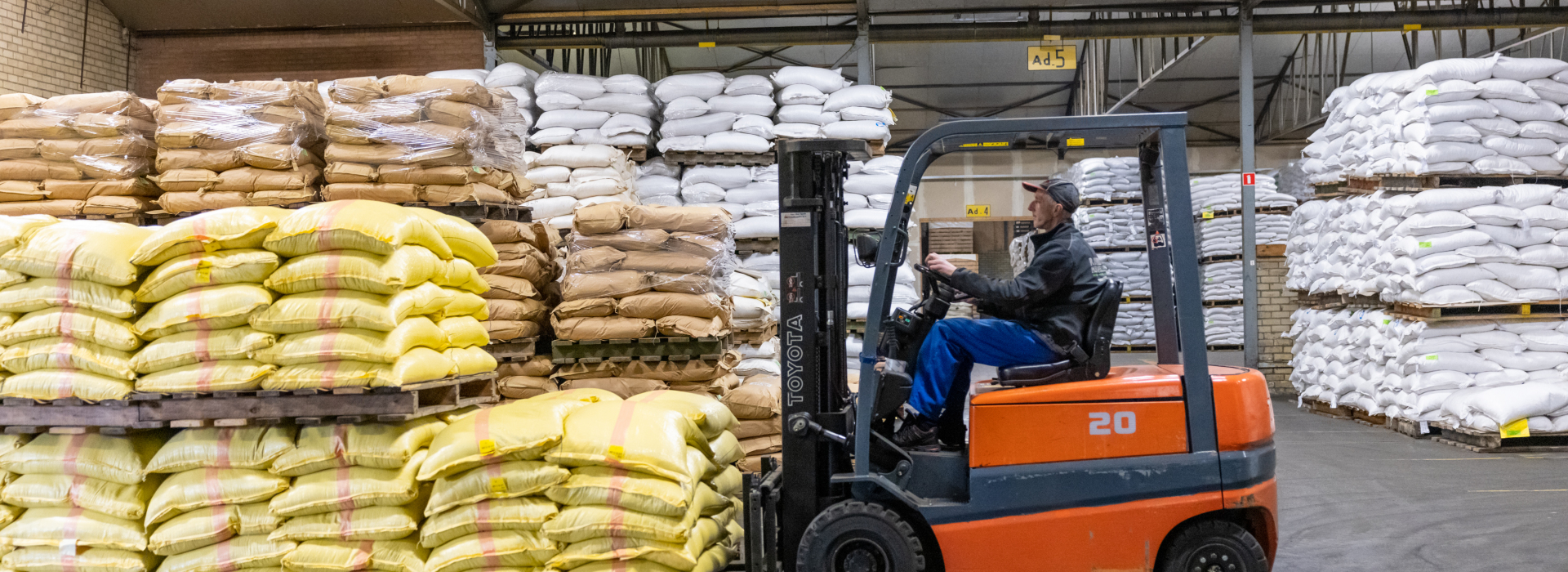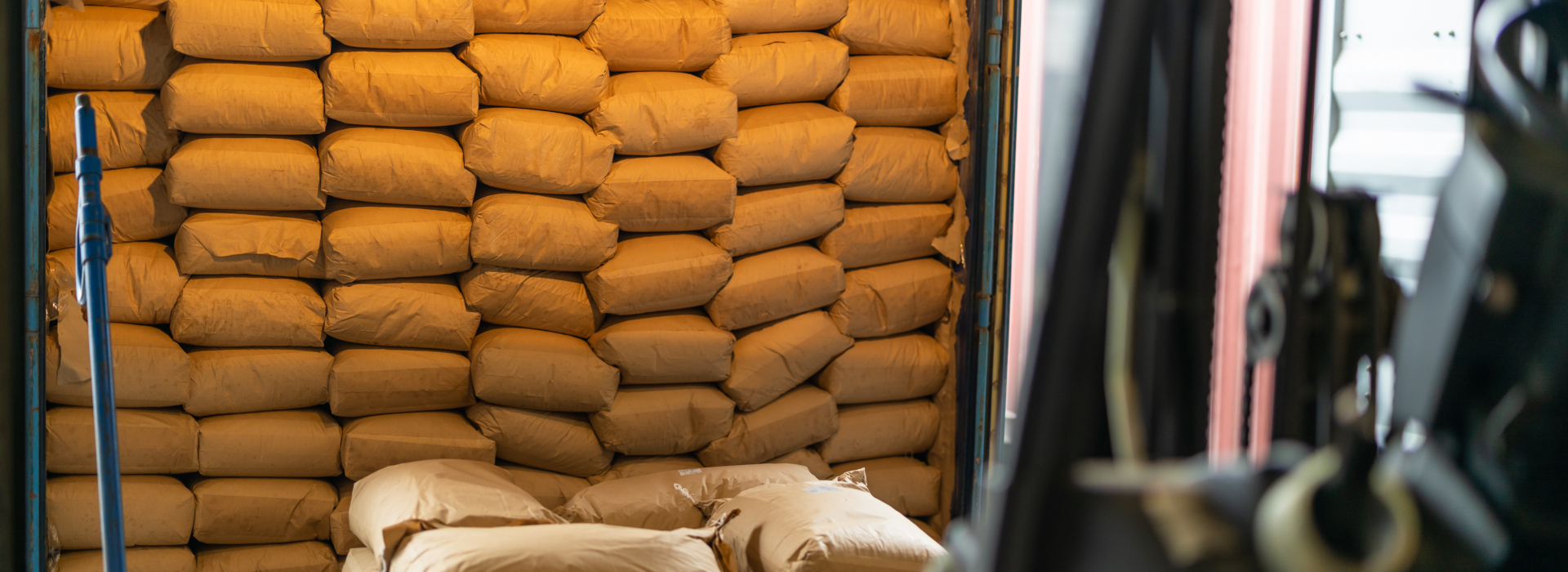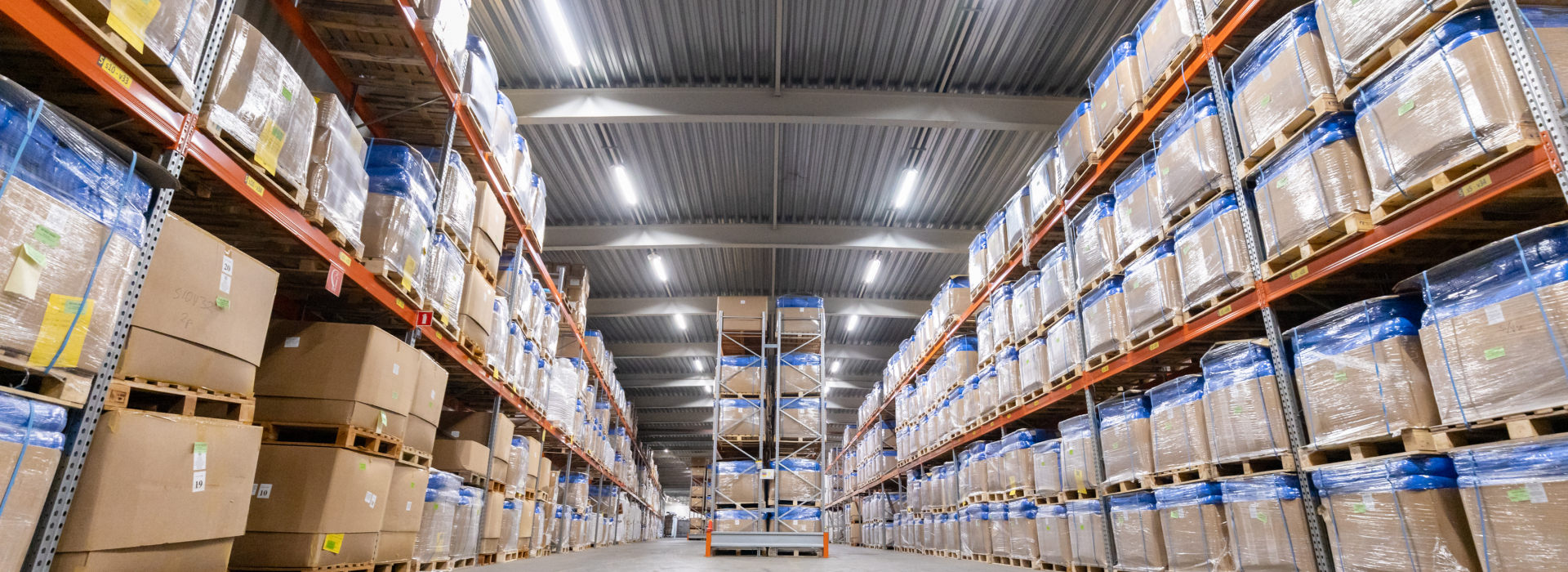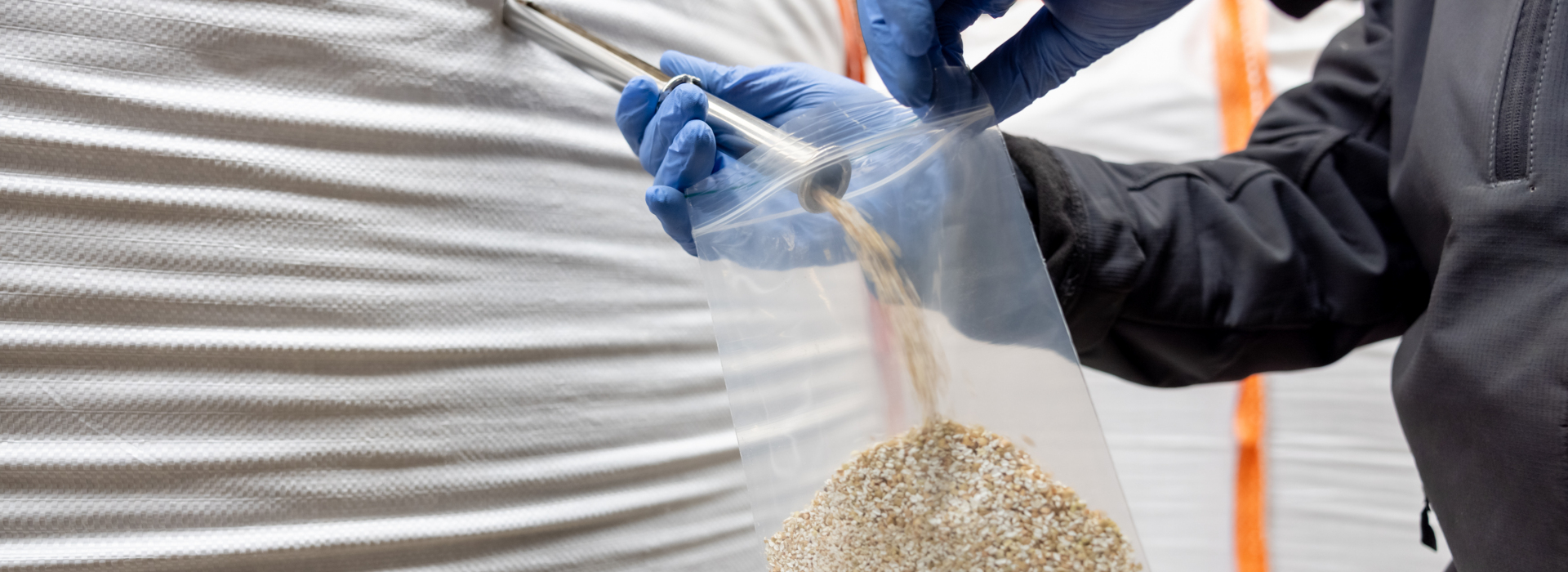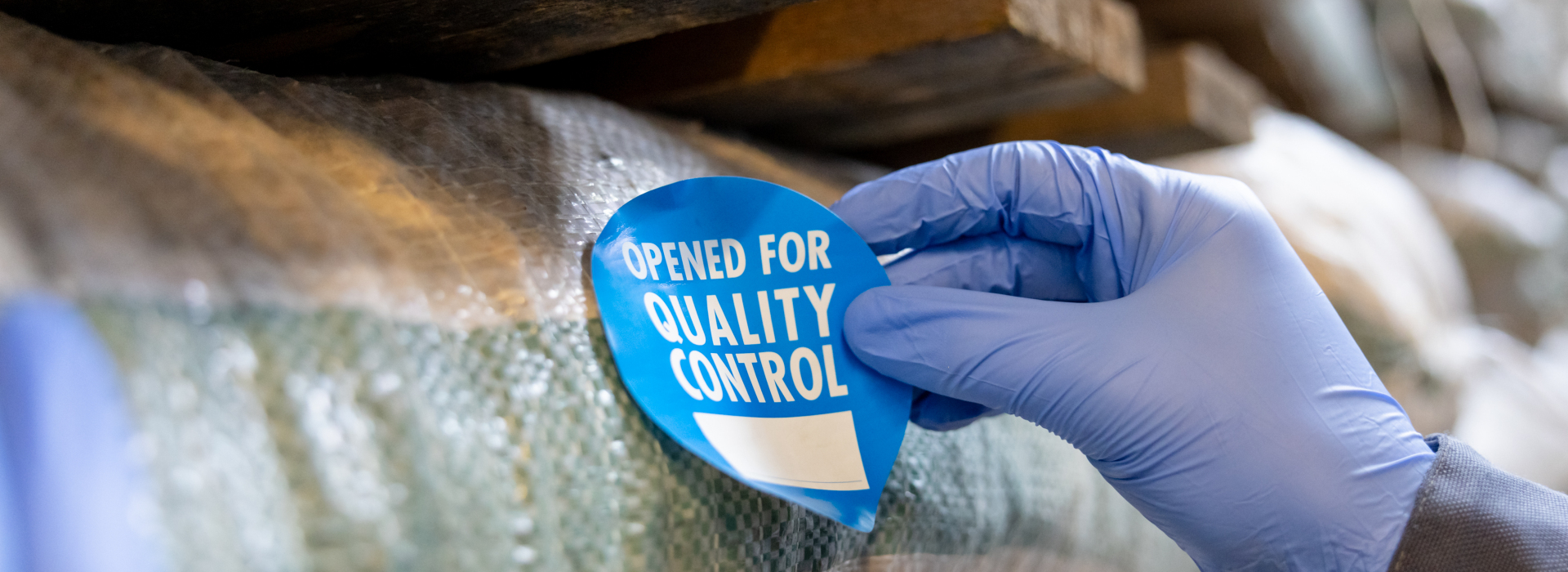De Vrij Moerkapelle
Our main location is Moerkapelle where our offices are and where the majority of the activities take place. We have approximately 15.000 square meters of storage space available at this location which is allocated to both packaged and bulk goods. Herbs and spices can and are being stored while fully separated from the odorless goods. We also offer temperature controlled storage space here.
Extensive processing lines
With, amongst others, the 7 different machine (cleaning) lines we can offer a wide range of possibilities when it comes to processing your goods and we can do so tailor made. Our location also houses the so-called allergen production line. On this brand new machine line we clean allergen containing products such as gluten, sesame and mustard seed in a fully separated and closed off production area. This means that products containing allergens are never cleaned on the same line as the non-allergenic materials, nor that this is even being done in the same building.
